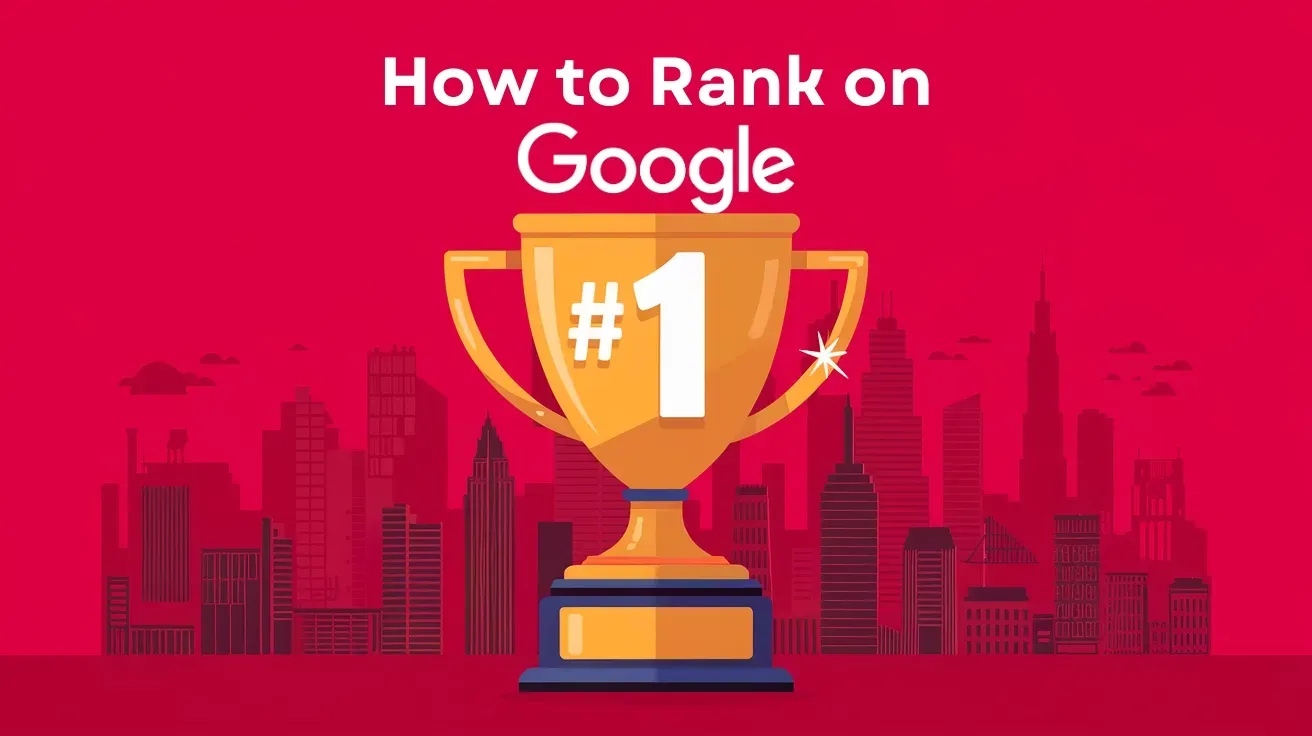Mastering SEO: Advanced Techniques for Boosting Your Website's Ranking
Boosting Website's
Ranking with SEO
Are you tired of your website being stuck in the dark and dusty corners of the internet, while your competitors bask in the limelight of the first page of search results? Do you often find yourself wondering if Google even knows your website exists?
While basic SEO practices such as
keyword research and on-page optimisation can certainly kick-start your journey to the top of search engine results pages (SERPs), mastering advanced SEO techniques can give you an extra edge over your competitors.
From schema markup to link building, and everything in between, this comprehensive guide will provide you with the tools and knowledge you need to propel your website to the top of the search results.
1. Focus on User Experience (UX)
Google's primary goal is to provide users with the best possible search results and experience. As such, it stands to reason that websites with a superior user experience will generally rank higher. To enhance your site's UX, pay attention to the following
top-ranking factors:
Site speed: A slow-loading site is a surefire way to increase bounce rates and harm your ranking. Use Google's PageSpeed Insights tool to identify areas where you can improve your site's loading speed.- Mobile-friendliness: With the majority of web traffic now coming from mobile devices, it's essential to ensure that your site is optimised for mobile users. Implement responsive design, and use Google's Mobile-Friendly Test tool to identify areas for improvement.
- Clear navigation: Make it easy for users to find what they're looking for on your site by using clear, intuitive navigation menus and implementing a search function.
- Readability: Use headers, bullet points, and short paragraphs to break up large chunks of text and make your content easier to read.
2. Create In-Depth, Comprehensive Content
Gone are the days when keyword-stuffed, 500-word blog posts were the go-to SEO strategy. Today, search engines reward content that provides real value to users and answers their questions thoroughly.
According to SEMRush, 55 percent of brands get better results when they put out higher-quality content. With that in mind, to create in-depth, value-rich content:
Research your target audience to understand their pain points and the questions they need to be answered.- Stay up-to-date with industry trends and news to ensure your content is relevant and timely.
- Use tools like Ahrefs or SEMrush to analyse your competitors' content and identify gaps you can fill or areas where you can provide a more comprehensive or unique perspective.
- Aim for a word count of at least 1,500-2,000 words, and include visuals, statistics, and expert quotes to back up your points and make your content more engaging.
3. Optimise for Voice Search
Voice search is rapidly gaining popularity, with more and more users turning to devices like Google Home and Amazon Echo to find information. To optimise your content for voice search:
- Write in a conversational tone and use long-tail keywords that reflect the natural language people use when speaking.
- Target question-based queries by including phrases like "how to," "what is," and "why" in your content.
- Structure your content with clear headers and subheaders to make it easier for voice search algorithms to identify relevant information.
4. Implement Schema Markup
Schema markup is a form of structured data that helps search engines understand the content on your site better and present it more attractively in SERPs. By implementing schema markup, you can improve your chances of earning rich snippets, which can increase click-through rates and drive more organic traffic to your site. Some common types of schema markup include:
- Organisation: Provides information about your company, such as the name, logo, and contact details.
- Breadcrumbs: Helps search engines understand your site's hierarchy and improves the way URLs are displayed in SERPs.
- Product: Provides details about a product, such as price, availability, and reviews.
- FAQ: Adds a frequently asked questions section to your site, making it more visible in search results.
5. Leverage the Power of Link Building
High-quality backlinks remain one of the most critical factors in determining your website's ranking. To improve your link-building strategy:
- Create high-quality, shareable content that others will want to link to.
- Reach out to influencers and industry experts to request guest-posting opportunities or collaborations.
- Use tools like Ahrefs or Moz to analyse your competitors' backlink profiles and identify potential link-building opportunities.
- Monitor your backlinks to ensure they remain live and relevant, and disavow any low-quality or spammy links that could harm your ranking.
6. Optimise for Google's E-A-T Principles
Google's E-A-T (Expertise, Authority, and Trustworthiness) principles are becoming increasingly important in determining search rankings. To optimise your website for E-A-T, focus on the following:
- Showcase your expertise by providing high-quality, informative content written by knowledgeable authors.
- Boost your website's authority by earning links from reputable sources.
- Build trust with your audience by being transparent about your business, providing contact information, and showcasing positive customer reviews and testimonials.
7. Perform Regular Content Audits
A content audit involves evaluating your website's existing content to identify gaps, redundancies, and opportunities for improvement. Regular content audits can help you keep your website fresh, relevant, and optimised for SEO.
- During a content audit, consider the following:
- Remove or update outdated content that no longer provides value to your audience.
- Consolidate or restructure similar content pieces to avoid keyword cannibalisation.
- Identify content gaps and opportunities to create new, high-quality content that addresses your audience's needs and interests.
8. Leverage Social Media for SEO
While social media doesn't directly impact your website's ranking on search engines, it can indirectly boost your SEO efforts. By sharing your content on social media, you can increase your website's visibility, drive more traffic, and generate valuable backlinks. To make the most of social media for SEO, create shareable, engaging content that resonates with your audience.
Additionally, optimise your social media profiles with relevant keywords and links to your website, and encourage your audience to share and interact with your content. You can also use social media platforms to identify trending topics and create timely content that captures your audience's interest.
The Bottom Line
SEO is an ongoing process, and staying up-to-date with the latest trends and best practices is key to maintaining your website's high ranking and visibility.
DSIGNS is
Australia's leading SEO agency, with a team of skilled professionals, customised strategies, comprehensive services, transparent reporting, and a proven track record. By choosing DSIGNS as your SEO partner, you can ensure that your business achieves better visibility, increased organic traffic, and higher conversions.
Connect with us today to discuss your SEO requirements and take your business to new heights!










